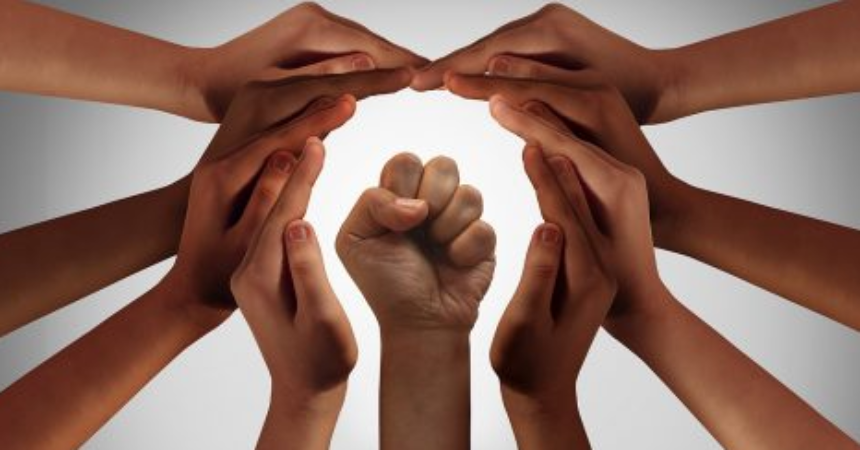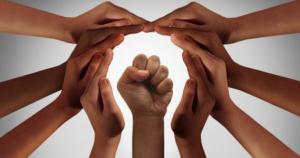
Vanessa Williams is making a difference with thousands of Black mayors
Vanessa R. Williams has earned the description of the “glue that holds 650 African American mayors together.”
In a lengthy conversation with Black Press USA, it was easy to see why.
“I came into this organization as a new executive director, and I saw where we were really missing an opportunity,” Williams said.
“The organization had a long history. It started as the Southern Conference of Black Mayors, and then it became the National Conference of Black Mayors,” she said.
Today, with its outreach stretching globally, the group has adopted the name, International Association of Mayors of African Descent and Heritage.
The International Association of Mayors of African Descent is visionary mayors and leaders united for the purpose and vision of establishing the platform in which education, empowerment, and economic development through trust, trade, training, and tourism.

Through the efforts of Vanessa R. Williams,
the Southern Conference of Black Mayors is now the National Conference of Black Mayors.
Photo courtesy iStockphoto / NNPA
“The next step for me was an international step because as we began to grow the organization domestically, we started seeing the similarities of conditions of the quality of life or the lack thereof both with Africans living on the continent of Africa,” Williams said.
She added: “So, the first step we took in 2006 was to Haiti and then a delegation to Columbia in 2007. In 2008 we took our first trip to Africa to Uganda. We took a delegation of mayors to figure out how to reconnect and open the door so that everyone can walk through it.”
Responding to the clarion call to erase the cultural divide that existed through distance, language barriers, and lack of resources, the organization believed that Black mayors could serve as a conduit to connect resources, talents and skills necessary to develop sustainable communities.
They also believed in creating a greater quality of life for the constituencies in which they serve.
Today, the International Conference of Black Mayors represents well over 39,000 African American, African, Afro-Caribbean, Latino and European mayors and local elected officials located throughout the African Diaspora.
“What we’ve done over the last 10 to 15 years is really quietly organize mayors of African descent throughout the globe,” Williams said.
“And it’s been a pleasure doing that and being able to come back and now present those associations through the African Union.
“We just recently signed a Memorandum of Understanding with the African Union to provide technical assistance and training to the mayors in the continent of Africa, and that was a major undertaking.”
Williams added that her message to those of African descent is that “we are at a point and time in history that our ancestors predicted we would get to and what’s happening, what you see right now, is we’ve been a sleeping giant, and the giant is awakening.”
“There is an awakening that’s happening across this nation right now, and it’s awakening people like Maulana Karenga, who spoke up when he created Kwanza and the principles of Kwanza,” Williams said.
“That self-determination to not be afraid of looking at what we do well and acknowledging our contribution to this country and this world because the world has benefited from this contribution.
“So, unless we acknowledge it, then the world will never see it for what it’s worth. We were more than just servants, we were people who brought our talent, our skill, our ability, our ingenuity, our creativity, and we put it to use. We brought life to it, and so that’s the spirit of our people.”
Williams demanded that the conference of Black mayors has big plans ahead, some of which she won’t be able to announce until a bit later. However, it hasn’t tempered her optimism.
“The last conference we did in Columbia, we had 3,500 mayors that came to our World Summit of Mayors Meeting in Columbia,” she said.
“At that conference, there were all these people of African descent. Some brown, some dark, some light. It was so beautiful and what was so amazing about it is that we came together. All of us, at the end of the day, wanted the same thing which was a quality of life for our children, education, clean water, clean air, good jobs, safe communities, and the ability to work and to learn and to participate in this capitalistic society.”
Williams maintains a desire to help young people.
“I just think that, as a village, we should come around our young people and embrace their differences in a way that allows them to be creative and not in ways that cause them to step away,” Williams said.
“Because if they are not strong enough, we’ll break people instead of building people. I don’t want our young people broken because they may think a little differently. I want them embraced because they do think a little differently.”







